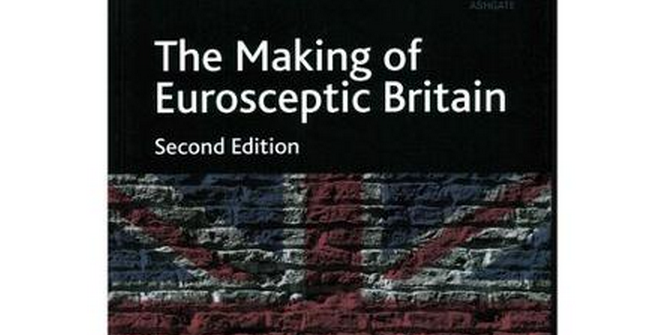The Making of Eurosceptic Britain

Since the United Kingdom joined the European Communities in 1973, successive prime ministers have sought to make the relationship one of the heart as much as one of the hip pocket. Edward Heath looked for the ‘whole-hearted consent’ of the British people; John Major hoped to be at ‘the heart of Europe’; even David Cameron promised – if the conditions were right – to put his heart and soul into campaigning for Britain’s continuing membership of the European Union (EU).
Despite these protestations from the heart, the relationship never ran smoothly. Chris Gifford offers a structural explanation for why: an explanation grounded in political economy and the populist politics of national identity that were an epiphenomenon of Britain’s post-imperial dilemma and its global orientation. He argues that the problems of Britain’s policy with regard to European integration are ‘a structural effect of post-imperial change [and] the establishment of a political culture within which Europe becomes antithetical to what Britain is and can become’.
This is a persuasive account, given that it studies the development and persistence of British Euroscepticism at a deeper level than issues of party management. It goes deeper than the work of the so-called ‘North Carolina School’ of research on Euroscepticism, giving a useful depth to such comparative analysis that can, at times, lack sensitive nuance to the political cultures in which Euroscepticism is articulated.
It also accords a central place to Euroscepticism in post-War British political culture, rather than seeing it as a marginal phenomenon. Gifford shows why both “hard” and “soft” Euroscepticism have long been features of public life in Britain. He attributes that to a path-dependency based on the UK’s global connections. This is not to deny that, at various stages in the past decades, European integration was not strongly associated with the “modernisation” of the British state and economy. However, such efforts always succumbed to the logic of Britain’s global and globalising economy (as well as its global pretentions). All the subsequent efforts to make Britain “more European” were ultimately discredited.
One element that could have been further explored is that of Britain itself. It is revealing that the very first word of the book – ‘Britain’ – requires an explanatory footnote. Since the late 1990s, British politics have diversified, increasingly along national lines. Although borrowing from Tom Nairn’s notion of the crisis of the British state in the 1970s, Gifford does not extend Nairn’s analysis of nationalism to Euroscepticism. It might be worth asking the extent to which European integration and British disintegration have some sort of causal relationship or the place of Euroscepticism as an issue of an increasingly politicised English grievance.
This is the second edition of this book and it is a timely re-working and re-publication, substantially updated in terms of the literature on Euroscepticism and covering the Coalition government’s response to the ‘European Question’. Gifford’s comprehensive and persuasive account will help readers understand the embedded complexities of Britain’s relations with the EU and the inter-related issues of economy and identity that make this relationship so persistently fraught.
Chris Gifford, The Making of Eurosceptic Britain, Second Edition, Ashgate, October 2014
Dr Ben Wellings is a lecturer of Politics and International Relations and Deputy Director of the Monash European and EU Centre, Monash University. This article can be republished with attribution under a Creative Commons Licence.





